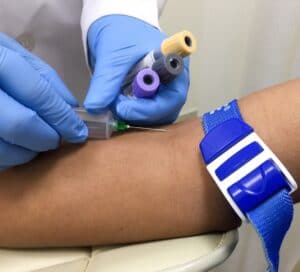What Does Your Thyroid Do?
The thyroid is a gland situated in front of the neck just beneath Adam’s apple. The thyroid gland is essential in the body and has a vital role in regulating most of the body’s functions. The thyroid consists of 2 lobes linked by fragile tissue that wraps around the trachea.
In newborn babies, thyroid hormones are critical for the growth of the brain and the bones. The regular working thyroid gland is crucial to the normal growth of the kids, as well as for both the long-duration and the minute-to-minute health of adults.
It produces very important hormones. These essential hormones called “thyroid hormones” have an impact on various aspects of the human body. These hormones are triiodothyronine (T3), tetraiodothyronine (thyroxine or T4), and calcitonin. But problems can arise with the gland, causing many people to take medications.
What are the main functions of the thyroid?
The hormones secreted by the thyroid gland are essential in regulating multiple functions and features of human bodies, including regulation of temperature, energy levels, body mass, nail and hair growth, and even more.
• Thyroid hormones have a role in brain growth and functioning.
• It helps with control of muscle and also healthy bone
• Adjusts the metabolism of the body
• Role in the metabolism of proteins, carbohydrates and fats
• Also help with the synthesis of protein
• Enhances the susceptibility to the catecholamine
• Crucial for the development and diversification of cells
• The thyroid gland has been estimated to be responsible for nearly 60 percent of the metabolic rate or basal metabolism. The basal metabolism is a rough estimate of how many calories burn to baseline just to do the basic things needed for survival.
How do you know if it is not working correctly?
To find out if your thyroid is functioning properly, the first thing we have to check for is any abnormality in the neck (a lump that was not there earlier or similar).
The most common problems with the thyroid gland are hypothyroidism if the gland does not produce sufficient hormones, or hyperthyroidism if it produces in excess.
Symptoms of Hyperthyroidism:
It can be challenging to know you have hyperthyroidism because its signs resemble other disorders. They might include:• Unexpected weight loss while eating a similar quantity of a meal or more
• Rapid or irregular heartbeat or unexpected beating of the heart
• Uneasiness, nervousness, or irritation
• You have tremors in your hands and fingers
• Perspiration
• Variations in your menstrual cycle
• Increase in thermal sensitivity
• Alterations in evacuations, particularly those that are more common
• Swelling around the bottom of the neck
• Tiredness or sense that muscles are feeble
• Inability to sleep
• Skin that is thinner
• Hair that is fine and fragile
Goiter:

A goiter develops if a thyroid swells due to hormone increased production. The thyroid requires iodine in most cases. But, if you’re not getting sufficient iodine, the body will attempt to make up for the lack, causing the gland to grow. If you get a goiter, you’ll have to take iodine additives and potentially contemplate surgery.
A strong feeling across the throat, harshness, cough, and difficulty in eating are goiter signs. It’s also worth noting that Hashimoto’s thyroiditis is more likely to lead to goiters. It is an autoimmune ailment that influences hundreds of people in the United States. The thyroid gets irritated and damaged as a result of this illness. Consequently, the body attempts to make up for it by increasing the size of the thyroid gland.
Hashimoto’s Disease

Hashimoto’s illness is the leading cause of hypothyroidism. It’s an autoimmune illness, which means the body’s immunization system targets and inflames the gland. It causes hypothyroidism by preventing the thyroid from producing adequate hormones.
Hashimoto’s illness is more common in females than males, affecting the families. Hashimoto’s disease is more common in people who have other autoimmune conditions.
Graves’ Disease

Graves’ disease is an autoimmune condition where the body’s immunization system targets the thyroid, producing an excess hormone that the body requires. It is the most prevalent complication of hyperthyroidism. Graves’ illness is more prevalent in women below forty, but it can strike anyone. Nervousness, irritability, weariness, and an erratic heart rate are all symptoms of Graves’ illness. Eye disorders, such as swelling, infection, and visual abnormalities, are also possible.
Symptoms of Hypothyroidism
The indicators can vary from person to person, and you might not observe any at first. On the other hand, lower levels of the hormone can ultimately cause several of your body’s functions to slow down.
Your nervous system is slowing down due to your body’s inability to utilize energy effectively. You may feel lazy, have mood changes, and show symptoms of depression when fatigue is paired with them. Depressive symptoms are frequently improved in patients who take hormone therapy.
You can have these symptoms:
- Feeling cold
- Being tired more frequently
- Dry skin
- Constipation
- Forgetfulness
- Feeling down or depressed
- Increase in weight
- Cholesterol elevation
- Myasthenia
- Hair thinning
- Hoarseness of voice
- Depression
What type of blood tests will help you determine if your thyroid gland is working correctly?
Although blood tests for these hormones are widely available and commonly utilized, not all are beneficial in all cases. You may order thyroid tests from here. The following tests can be used to assess hormone levels:
TSH TESTS
The TSH level in a sample of blood is the best technique to track thyroid function initially. TSH alterations might function as an “initial warning mechanism,” appearing before the body’s natural levels of the hormone are getting too large or too small. Excessive TSH levels indicate that the gland is not producing sufficient hormone (basic hypothyroidism). If the TSH level is less, it usually means that the gland produces excessive hormone levels (hyperthyroidism).
T4 TESTS
Total T4 is a test that defines the amount of hormone bound in circulation and the amount which is free and may change if the binding proteins are different. Free T4 is a measurement for the amount not bound and possible to go in and change human tissues. Compared to TSH, tests that measure free T4 – whether a free T4 (FT4) or a free T4 index (FTI) – more properly indicate how the gland is working. You can order this test from Walk-in Lab.
T3 TESTS
T3 tests are often used to diagnose hyperthyroidism or evaluate the seriousness of the disease. T3 levels will be increased in patients of hyperthyroid. Just the T3 is increased in few individuals with lower TSH, while the FT4 or FTI is entirely normal. In the patient of hypothyroidism. T3 testing is rarely helpful because this is the final measurement of becoming irregular. Patients with a higher TSH and lower FT4 and FTI while usual T3 may be significantly hypothyroid.
FREE T3
Free T3 testing is available; however, it is frequently unreliable and thus ineffective.
REVERSE T3
It is a naturally inert protein that has a structure identical to T3. At the same time, the atoms of iodine are arranged differently, rendering it inert inside the body. A few reverse T3 is created naturally while it is swiftly destroyed.
References:
How the Thyroid Gland Functions (verywellhealth.com)
Diagnosing Thyroid Problems: How You Can Tell If You Have One (webmd.com)
